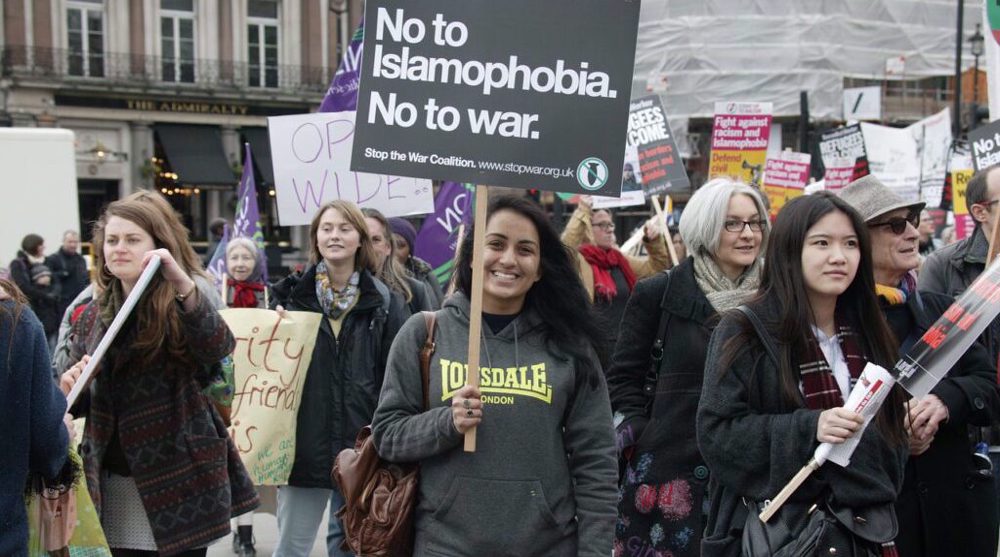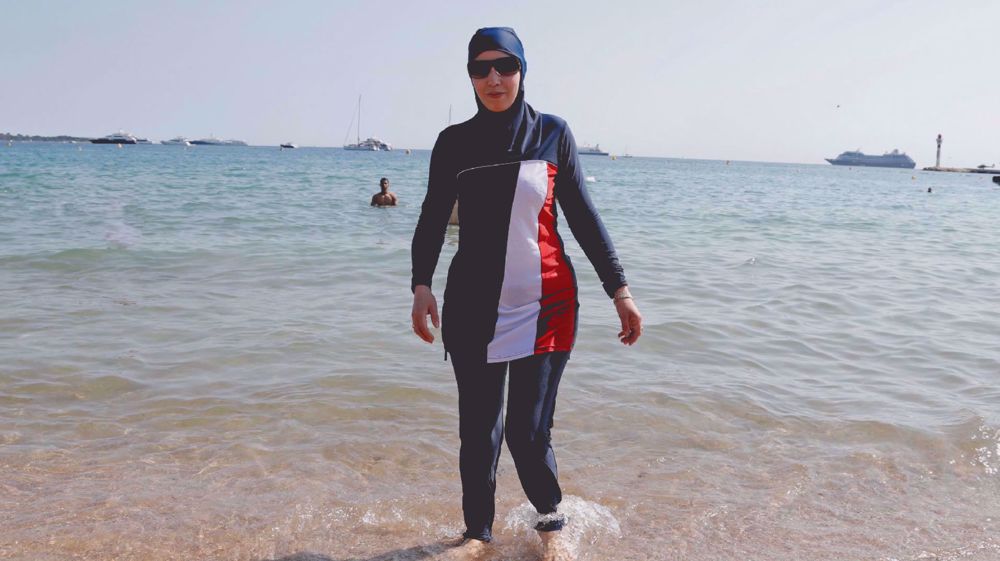
They singled out France, Denmark, and Austria as some of the European countries contributing to a “systematic suppression of Muslim civil society” across the continent.
Addressing the Organization for Security and Cooperation in Europe’s (OSCE) Human Dimension Conference in Warsaw, Lamies Nassri, project manager of the Danish Muslim Rights Center, said Islamophobia was spreading throughout Europe.
She called on governments to protect Muslims in their respective countries from this toxic wave.
“It is your responsibility as member states to see to it that citizens in these member states are protected from state racism, surveillance, stigmatization and violence both symbolically and physically," Nassri told the delegates.
Pointing to the situation in Denmark, she said Islamophobia was being “enabled directly through state policy and participation” and was “no longer a far-right issue but is shared across the political spectrum”.
She said that many Muslims in Denmark faced discrimination due to the country’s categorization of people from non-western backgrounds, which took precedence over their rights as Danish citizens.
Nassri further cited the impact of so-called “ghetto laws” on Muslim communities.
The laws, which have been widely criticized, aim to reduce the number of people of “non-Western origin” in designated “vulnerable areas” to less than 30 percent, through evictions, double punishment, over-policing, and compulsory daycare.
Nassri termed the laws "discriminatory" against Muslims and ethnic minorities, which deprive them of their rights and label them as “enemies within the state, who live in parallel societies that must be fought".
“We also see this targeting in the way Muslims families are portrayed as oppressive and controlling toward their children and, as such, need to be surveilled,” she added, citing a law that requires non-western residents in “ghetto” neighborhoods to put their children into state nurseries from the age of one “to get instruction in Danish values and language”.
Delegates from France underscored the impact on Muslim communities of the so-called “imams’ charter” which was adopted last year by the French Council of the Muslim Faith at the behest of French President Emmanuel Macron.
Elias d’Imzalene of French NGO Perspectives Musulmanes said the charter amounted to an “Orwellian policy” that seeks to impose “a new reading of Islam ordered by the state”.
“The police threaten to close any mosque denouncing this new inquisition while a political hunt is also carried out, targeting the dissenting voices of the community, thus making Muslim expression essentially criminal,” said d’Imzalene.
Muhammad Rabbani, managing director of Cage, a UK-based advocacy organization that also works in France, said French Muslims face a "state-led program of repression" in which organizations critical of government policies are censored, shut down, and criminalized.
Nehal Abdalla, an advocacy officer at ACT-P, an Austrian organization formed to support children caught up in police raids in the aftermath of Operation Luxor, also addressed the conference.
Austrian police raided 70 Muslim households and arrested 30 academics and activists in November 2020, but none of them were later charged.
Abdalla said that families and children caught up in the raids had awoken to a “real-life nightmare” which amounted to “terrorizing the Muslim community”.
According to a poll conducted by the Savanta ComRes in recent months, anti-Islamic behavior in Europe and the UK has increased in recent years.
The survey found that 69 percent of Muslims currently employed in the UK experienced some sort of Islamophobic behavior during work-related engagements.
Almost 44 percent percent of British Muslims said they faced anti-Muslim behavior during interactions with customers, clients, and other people in the workplace, while 42 percent experienced it during work-related social events, and 40 percent when seeking promotions.
While discriminatory treatment of all Muslims in the UK is reported at 37 percent, the figure stands at 58 percent among Black Muslims.
The British Muslim community has borne the brunt of the cost of living crisis in the country as well, with 54 percent of respondents saying that providing for their households had become a major challenge.
A recent report on Islamophobia in the UK showed that British Muslims were among the groups facing the most discrimination in the country.
Another report published in 2020 criticized many European states for failing to report on anti-Muslim incidents as a separate category of hate crime.



No comments:
Post a Comment